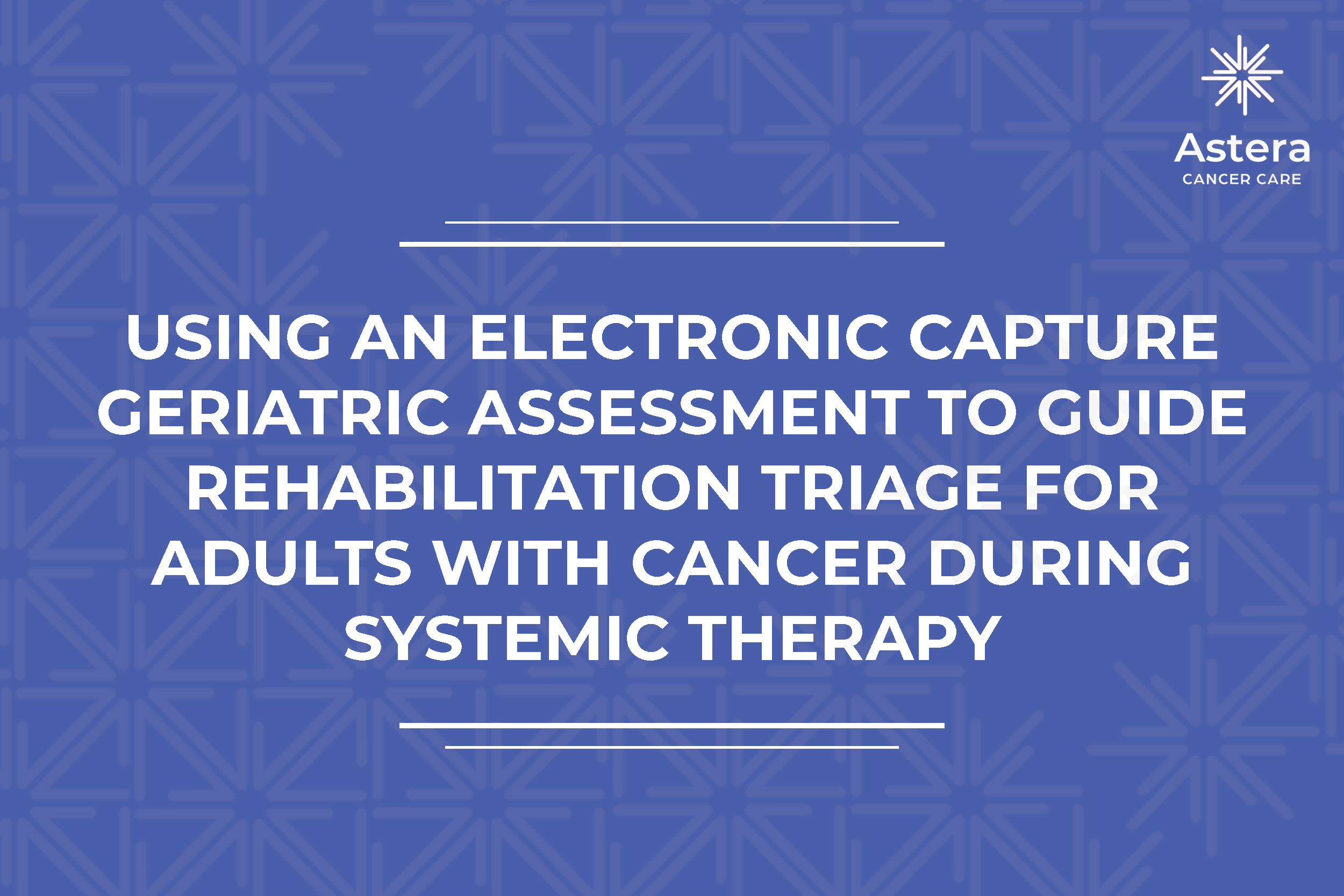Using an Electronic Capture Geriatric Assessment to Guide Rehabilitation Triage for Adults with Cancer During Systemic Therapy.
Based on research that took place at Astera Cancer Care, this abstract was authored by ReVital, with key support and co-authorship from Astera Cancer Care’s Ellen Ronnen, MD, and Rachel Carroll, APN-BC.
Among older adults who are receiving cancer care, frailty is often associated with poor treatment and survival outcomes, but this doesn’t have to be the case if frailty is identified early and interventions are put in place, research shows. In fact, ASCO recommends using a geriatric assessment to identify frailty and guide care (including physical and occupational therapy) in a way that optimizes patient outcomes — but this practice is rare.
“During or after chemotherapy, 60-90% of individuals experience treatment-related side effects that can affect one’s ability to do day-to-day activities and the activities that matter most to them,” explains Tiffany Kendig, PT, DPT, MPH, CLT, who is Director of Quality at ReVital Cancer Rehabilitation. “Optimizing performance status and helping to address side effects early-on can be very effective – this is the essence of prehab.”
This research involved a pilot study of a geriatric assessment-based electronic frailty monitoring and physical therapy/occupational therapy (PT/OT) triage system. The study participants included adults with cancer who were starting a new line of systemic therapy at Astera Cancer Care. These adults participated in a monthly geriatric assessment for up to one year, with frailty identified in real time based on their responses to the assessment. Healthcare providers were told to place a referral for PT/OT if patients were identified as frail or pre-frail. Among participants who participated in rehabilitation, the researchers evaluated changes in health-related quality of life.
Study results showed that an electronic capture frailty monitoring and PT/OT triage system that relied on a patient-reported geriatric assessment is feasible in a community oncology practice and may positively impact a patient’s experience in systemic therapy and their health-related quality of life.
“They proved that you can do this and if you do it while patients are getting therapy, you can significantly improve metrics,” Ronnen says. “Patients reported better physical health, mental health, and physical function after being enrolled in this.”
The researchers recommend that community oncology practices that use geriatric assessments should incorporate PT/OT triage into routine care.
“The approach that Astera took is both proactive and innovative—it allows us to assess and understand frailty based on the patient’s perception of how they’re doing and proactively connect them with outpatient PT/OT services early on to help optimize function and quality of life as they progress through cancer treatment,” Kendig says.
Astera Cancer Care patients agreed that the focus on physical therapy and occupational therapy as prehab helped them tolerate cancer treatment side effects and maintain quality of life.
"Everything was always achievable and tailor-made to me so I can maintain that lifestyle that I had prior. And so that I’m still able to do things and be the person I was and actually am,” one patient said.
Another patient said the program helped them immensely. “They did a complete assessment of what I could do, and what I wanted to do,” they said. “And the goal was to maximize independence.”

